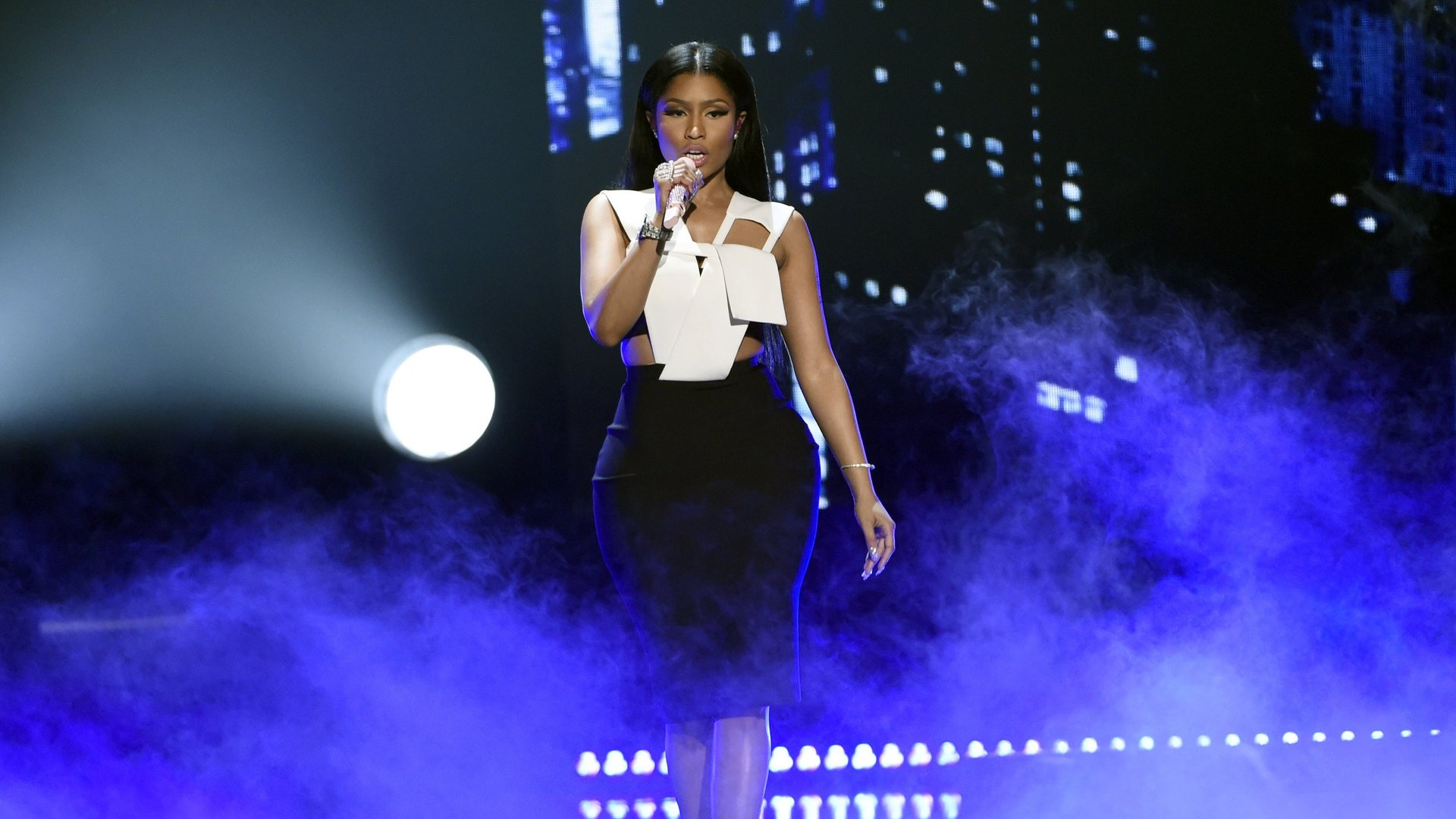Nicki Minaj should cancel her concert in Angola
News that American hip-hop artist Nicki Minaj will perform in Luanda, Angola, on Dec. 19 has sparked outcry among human-rights advocates this week. The Grammy-winning rapper is slated to sing at a Christmas concert for Unitel, a communications company controlled by the family of dictator José Eduardo dos Santos.


News that American hip-hop artist Nicki Minaj will perform in Luanda, Angola, on Dec. 19 has sparked outcry among human-rights advocates this week. The Grammy-winning rapper is slated to sing at a Christmas concert for Unitel, a communications company controlled by the family of dictator José Eduardo dos Santos.
Thor Halvorssen, president of the Human Rights Foundation, called on Minaj her to cancel the appearance. “Nicki Minaj is a global artist. Millions of people look up to her for creative inspiration,” he told The Hollywood Reporter. “There is no good reason for her to do business with the corrupt Angolan dictatorship and endorse the ruler’s family’s company.” (Minaj will presumably be remunerated for the appearance by Unitel, and thus indirectly by the dos Santos regime itself.)
In and of themselves, performances by major pop stars in countries led by dictatorships are not necessarily unethical. Given the brutal subjugation that is daily life in some of these places, visiting artists can offer respite to beleaguered populaces, however brief. That being said, when a performance is clearly little more than a transaction between performer and dictatorial regime, such events invite and deserve scrutiny.
In the case of Angola, president dos Santos has been in power since 1979, when he replaced Agostinho Neto, the country’s first leader following Portuguese decolonization. Though he has held executive office for over three decades, dos Santos has never formally been elected by Angolan voters. He is Africa’s second longest-serving head-of-state, after Equatorial Guinea’s infamous Teodoro Obiang Nguema Mbasogo.
While he has received accolades for presiding over the country’s oil-driven economic boom following decades of bloody civil war, pro-democracy advocates in Angola and abroad see dos Santos as a corrupt authoritarian, wielding development policy and exploiting his diplomatic ties with China, Brazil, and the United States to retain power.
“He is a dictator who is not as flamboyant as the ordinary African dictators,” Rafael Marques de Morais, an Angolan anti-corruption activist and journalist told The Guardian in 2012 after dos Santos enacted a constitutional change that would allow him to stay in office until at least 2022. “This has misguided many people in Africa.”
Apparently, dos Santos’s quiet dictatorial politics have misguided people all over the world. Minaj has agreed to headline Show Unitel Boas Festas in Luanda just six months after Angolan hip-hop artist Luaty Beirao, aka Ikonoklasta, was arrested, along with 16 others, for participating in a meeting on democracy and non-violent protest. All 17 currently face charges for “rebellion and plotting against the president and state institutions,” according to the BBC.
This is also not the first time a popular American artist has come under fire for fraternizing with dos Santos. According to the Human Rights Foundation, singer Mariah Carey received $1 million for traveling to Angola in 2013 and performing for the president himself. As a result of HRF’s vocal criticism, Carey severed ties with her manager, Jermaine Dupri. Interestingly enough, Carey is now managed by Brian Sher, who also manages Nicki Minaj.
Other artists have come under similar fire for performances in dictatorships elsewhere. In 2013, singer Jennifer Lopez weathered heavy criticism for performing in Turkmenistan. The Central Asian republic is ruled by Gurbanguly Berdimuhamedov, the handpicked successor to post-Soviet dictator Saparmurat Niyazov. Following international outcry, Lopez issued a public apology via her publicist: “Had there been knowledge of human rights issues any kind, Jennifer would not have attended.”
Let’s hope Nicki’s publicists are keeping her in the loop on this one.